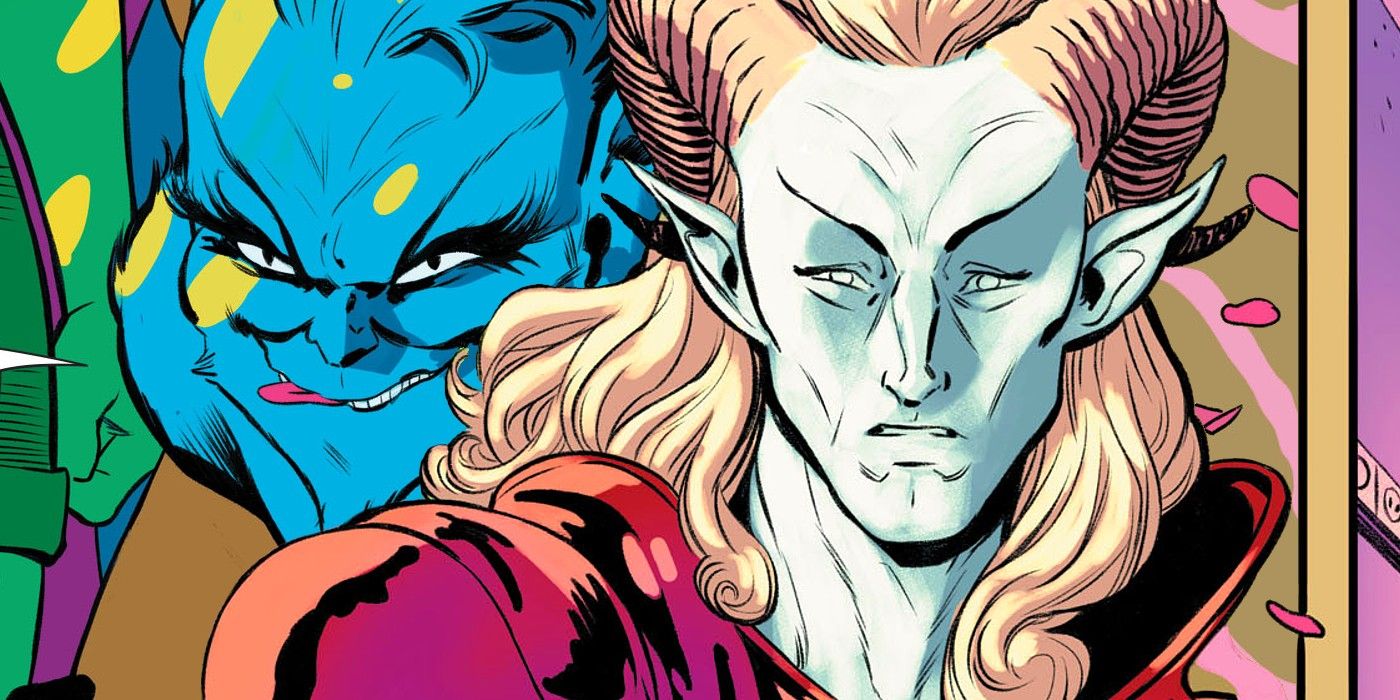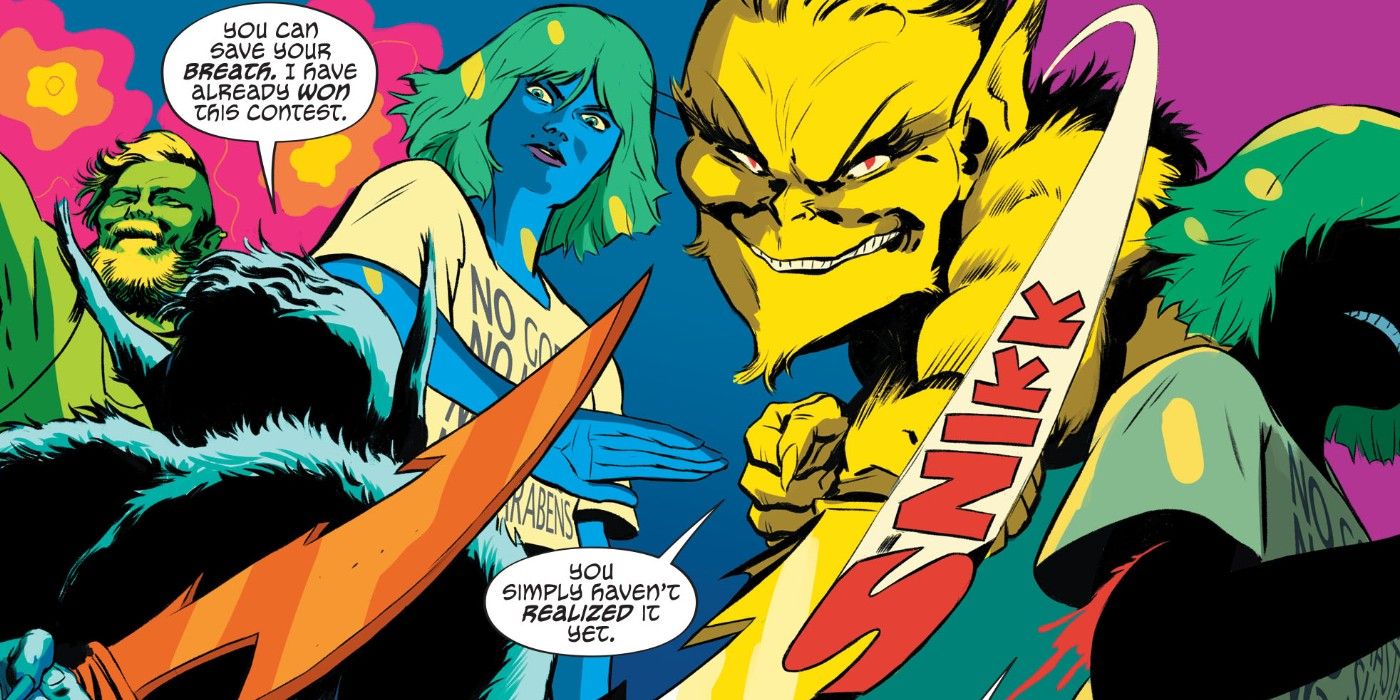Warning: contains spoilers for The Dreaming: Waking Hours #7!
The mind-bending world of Sandman continues to expand in the pages of The Dreaming: Waking Hours, but this time the star of the show isn't the lord of Dreams but a pair of characters DC doesn't even own the rights to. The comic is one of several books from DC's Black Label imprint aimed at more mature readers, and takes place in the Sandman Universe, named after Neil Gaiman's original The Sandman comic series where the world of dreams was first introduced.
The Dreaming: Waking Hours is written by G.W. Wilson, best known as the creator of the Marvel Superhero Kamala Khan, and follows the various denizens of the Dreaming, the magical realm of stories ruled over by Dream of the Endless. Unlike the first Sandman series, which was laser-focused on Dream and his family the Endless, The Dreaming: Waking Hours takes a different approach. The first 5 issues of Waking Hours instead follow the introduction of Ruin, a living nightmare who wants to escape the Dreaming and enter the waking world. An interesting premise for a Sandman story, but it only gets more interesting as the comic develops.
During Ruin's attempt to experience the real world, he ends up switching places with Lindy, a New Jersey woman and Shakespeare scholar whose adventures in the Dreaming are filled with constant Shakespeare nods and references. After Lindy's life seemingly returns to normal, however, issue #6 switches perspective to a young witch named Heather as she is menaced by another Shakespeare reference in the form of the fairy Puck, who attacks her using the powerful Vorpal blade from Alice in Wonderland, inflicting a minor wound which will nevertheless never heal.
This isn't the first time a Sandman story has referenced the Bard - during the classic issue The Sandman #19, Dream joins Puck and a group of fairies to watch the premiere of Shakespeare's play A Midsummer Night's Dream; the same exact play from which Puck originates. Later, while Heather is resting in the hospital in The Dreaming #7 she is visited by yet another character from A Midsummer Night's Dream - the king of the fairies, Oberon (or Auberon, as it's spelled in this comic). Both of these characters are borrowed first from Shakespeare's plays, then from Gaiman's stories. They're not created by DC Comics, but they end up being the highlight of the series.
Like in past issues of The Sandman, The Dreaming uses its own original interpretation of these classic characters to move the plot forward. DC aren't lacking for original characters, but in bringing Alice in Wonderland and A Midsummer Night's Dream to the fore, they begin the story with a set of assumptions on the part of the reader which they can then either use or subvert in creative ways. Auberon's imperious attitude and Puck's wild nature already exist in the back of the reader's mind, and so the comic doesn't have to waste time establishing them over multiple scenes. Readers don't need to be convinced of the Vorpal Blade's significance like it's some previously unheard of weapon, and nor do they feel betrayed when Auberon is powerful enough to heal the unhealable wound - these references carry their literary significance with them, and in The Dreaming: Waking Hours' case, this makes for a breakneck story that doesn't waste a moment.
The decision to bring in other characters from fiction and mythology helps to remind readers that the Sandman universe isn't just about dreams but about the power of storytelling and fiction. Auberon and Puck position The Dreaming: Waking Hours in the wider world of fiction, just like Sandman before it, instantly elevating it to a place where it's already in discourse with big ideas and well-known characters. As cool as the series' original characters are, there's a reason Auberon and Puck steal the show, and fans should look forward to seeing how their plans unfold in future issues.


